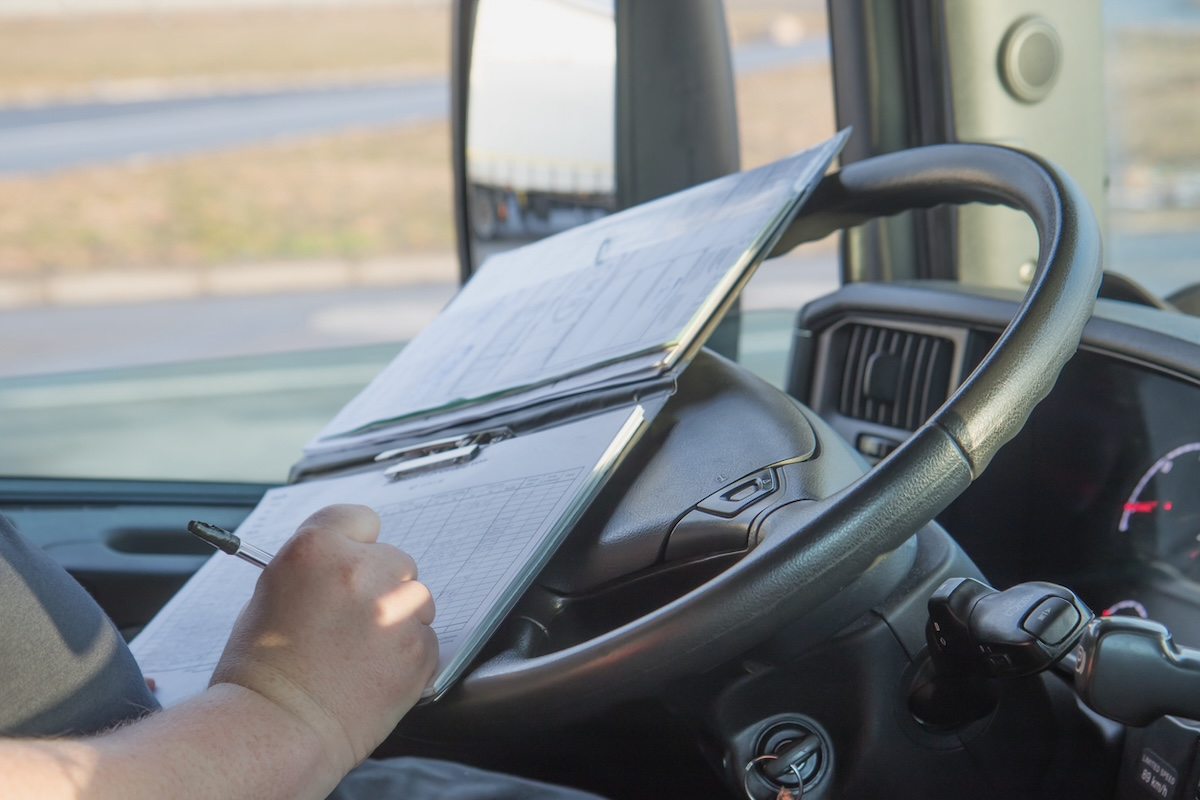In the aftermath of a devastating truck accident, the search for answers and accountability begins. Amidst the wreckage and emotional turmoil, one piece of evidence stands out – the truck driver’s logbook. The driver’s logbooks hold extraordinary value in truck accident lawsuits, often revealing the events leading up to the crash.
What is a Truck Driver’s Logbook?
A truck driver’s logbook records a commercial truck driver’s service hours (HOS). It’s a tool designed to promote safety by ensuring drivers adhere to federal regulations regarding how much time they can spend behind the wheel.
Traditionally, logbooks were kept as paper records. Now, technology has stepped in with Electronic Logging Devices (ELDs), designed to streamline the process and enhance accuracy. Whether in paper or electronic form, these logbooks must document essential details, including:
- Hours of driving
- On-duty time (not driving)
- Off-duty time
- Sleeper berth time
Logbooks in Ensuring Compliance with Federal Regulations
Truck drivers and trucking companies operate under the strict regulations of the Federal Motor Carrier Safety Administration (FMCSA). These regulations dictate the maximum hours a driver can be on duty and behind the wheel within specific time frames. Logbooks are tangible records of compliance (or lack thereof) with these essential safety rules.
Below are some key aspects of the FMCSA’s Hours of Service (HOS) regulations:
- Commercial truck drivers may drive no more than 11 hours after ten consecutive hours off duty.
- Drivers are limited to 14 consecutive hours on duty after 10 consecutive hours off duty. Driving is included within these 14 hours.
- Drivers cannot drive after accumulating 60 hours on duty in 7 consecutive days or 70 hours on duty in 8 consecutive days. A driver may restart after 7/8 consecutive days after taking 34 or more consecutive hours off duty.
- Violating these regulations has serious consequences, compromising the safety of the driver and everyone else on the road.
- Texas has its own rules that contain some exceptions for intrastate truck drivers.
The Role of Logbooks in Truck Accident Lawsuits
Logbook compliance isn’t without its challenges. Truck accident lawyers frequently encounter various issues related to logbooks, including:
- Falsified records
- Missing or incomplete logs
- Multiple logbooks
- Technical issues with ELDs
These concerns underscore the importance of meticulous logbook reviews by legal professionals. Our expertise allows us to identify discrepancies and inconsistencies that may shed light on the contributing factors of a truck accident.
Cheating on logbooks or violating the safety rules for truck drivers is powerful evidence in a truck accident lawsuit.
If you suspect logbook violations might have contributed to a truck accident, don’t hesitate to seek the help of a trusted Houston truck accident attorney.
The Emergence of Electronic Logging Devices (ELDs)
In December 2017, the FMCSA mandated the use of electronic logging devices (ELDs) for most commercial truck drivers. This transition aims to improve safety and simplify compliance with HOS regulations. ELDs offer several advantages over traditional paper logbooks:
- Increased accuracy
- Streamlined recordkeeping
- Real-time monitoring
While ELDs are a powerful tool, it’s important to remember that they are not foolproof. Technical problems can occur, and drivers may still find ways to manipulate the system. Therefore, careful analysis of ELD data remains crucial to learning whether the driver complied with the safety rules. The best trucking accident law firms frequently analyze logbooks in truck accident lawsuits.
Collective Responsibility of Drivers, Carriers, and Regulators
Ensuring logbook compliance and promoting road safety aren’t solely the responsibility of drivers. Trucking companies (motor carriers) and regulators also play crucial roles:
Trucking Companies
Carriers are obligated to:
- Train drivers on proper HOS regulations and logbook use.
- Implement systems for regular logbook review and auditing.
- Address potential HOS violations promptly.
- Create a company culture that prioritizes safety over unrealistic deadlines.
Regulators
- Enforcing HOS regulations through inspections and audits.
- Imposing penalties on drivers and carriers who violate logbook rules.
- Updating regulations and adapting to technological advancements.
- Through this collective effort, the trucking industry can reduce the risk of fatigue-related accidents and ensure a safer environment for everyone on the road.
In a truck accident litigation, the truck driver’s logbook becomes a powerful tool for uncovering the truth. It provides invaluable insights into drivers’ adherence to federal regulations, shedding light on potential fatigue, recklessness, and liability. A Houston truck accident lawyer can help you examine logbook entries, whether paper or electronic, identify discrepancies, build strong cases, and hold those responsible for devastating truck accidents accountable.
How Logbooks in Truck Accident Lawsuits Can Help Prove a Case
Often, violations of the Federal Motor Carrier Safety Regulations (FMCSR) are only discovered after a personal injury or wrongful death lawsuit is filed and discovery is obtained. Our truck accident attorneys often subpoena cell phone records and location data to compare with the logbooks. We have won many cases by proving violations of the FMCSRs.
Read More: What is the average semi-truck accident settlement?
Contact the Best Truck Accident Lawyer in Houston for Help!
For over 40 years, our truck accident lawyers at Baumgartner Law Firm have helped victims get justice. We work to secure the highest compensation possible for them.
Call Baumgartner Law Firm, a personal injury law firm, at (281) 587-1111 for a free consultation.
Baumgartner Law Firm
6711 Cypress Creek Pkwy, Houston, TX, 77069













